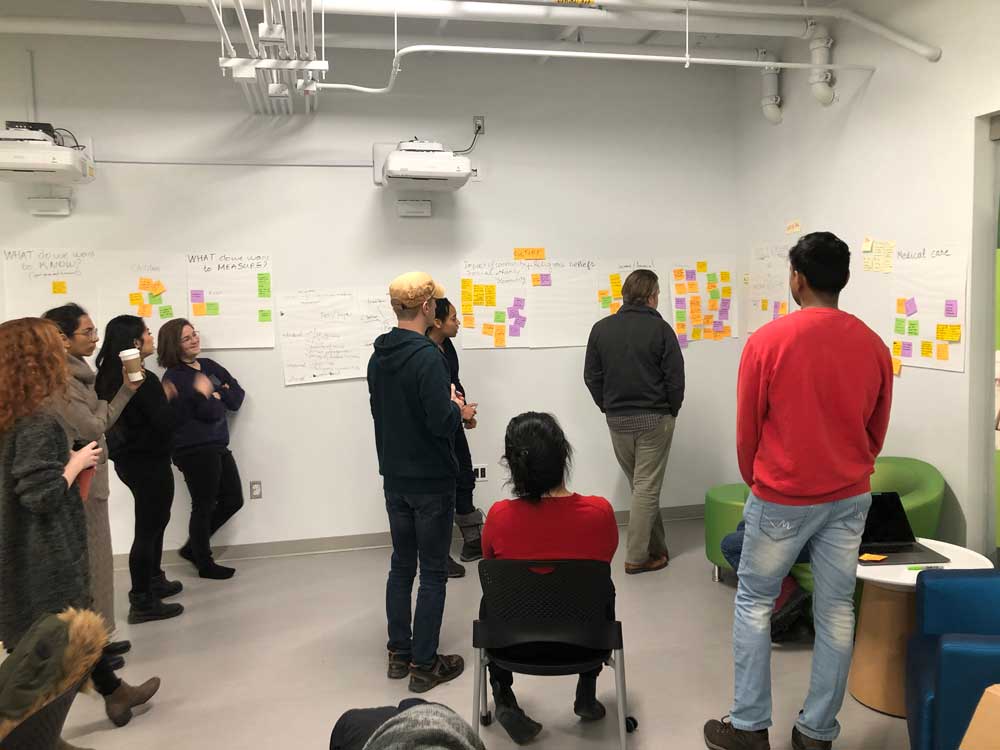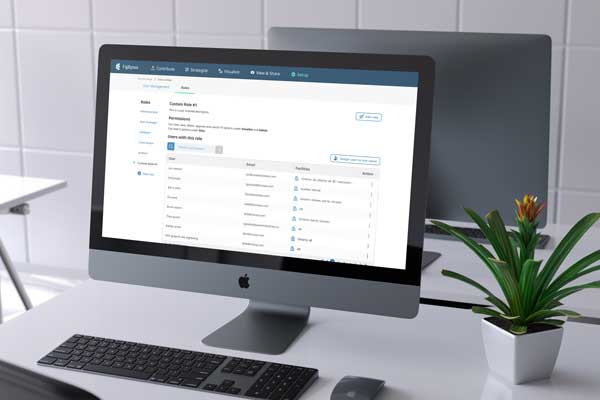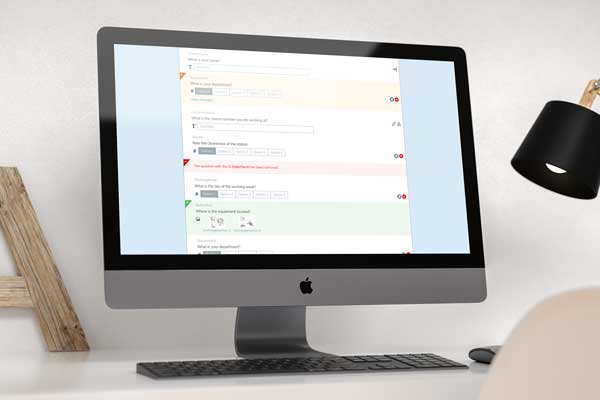Project Kampe
COEFA has partnered with multiple Algonquin College programs to conduct research and provide a solution to help with the lacking maternal healthcare in Nigeria. The WHO reports that over 34% of global maternal deaths originate in Nigeria. For Nigerian woman lifetime risks of death throughout - and after - maternal care is 1 in 22 (for developed countries, it is 1 in 4900).
Our Purpose
As part of the Algonquin colleges HCD program, the class was split into five groups of 4 to conduct discovery research in the problem space. The collected research would be passed on to the another program to help them build an informed solution.
The primary question we wanted to answer was: Who do mothers trust and what directly influences their decisions to seek or receive healthcare during pregnancy or child-birth? While the the secondary question we were looking to answer was: What are the cultural norms around tracking or monitoring their maternal health & what influences their decision to seek healthcare?
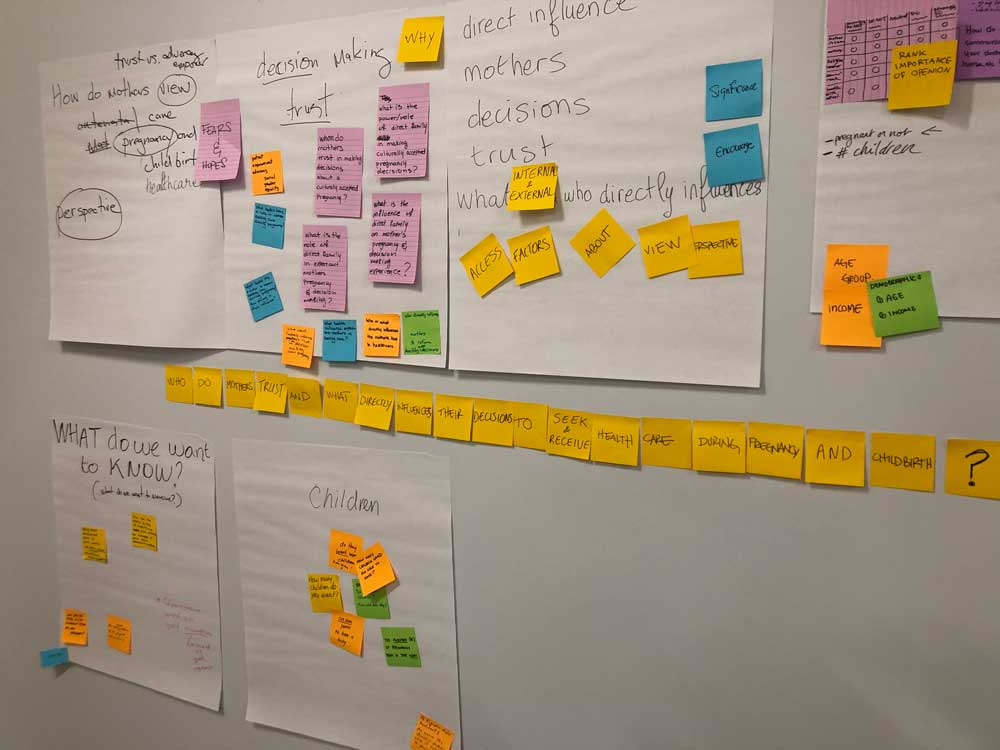
Timeline Overview
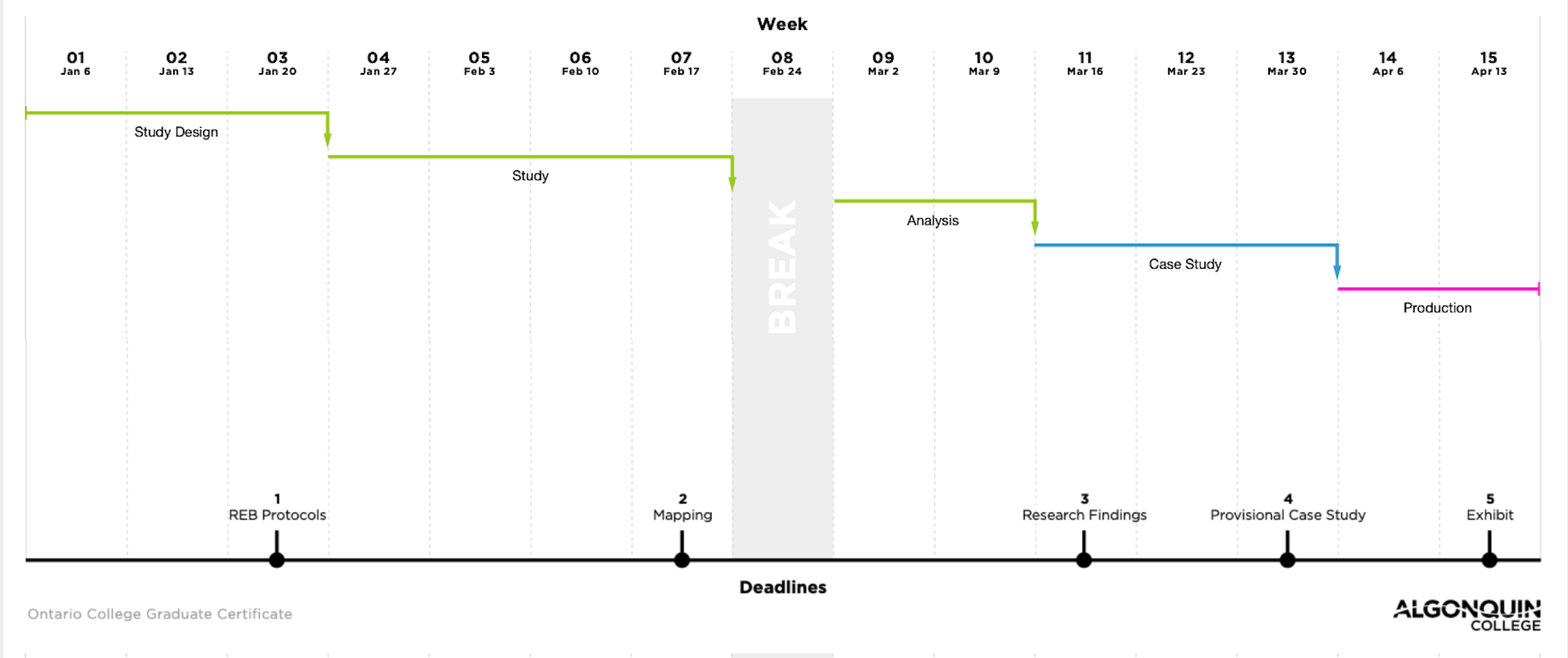
Research Methods
Secondary Research
As no one from our team was over familiar with the culture and over all landscape in Nigeria, we wanted to build up our base knowledge. We read over 30 academic articles and personal accounts to help formulate questions. In particular, my team felt the Nigerian youtube account I found with street interview videos to be particularly informative.
SME Interviews
Together the team worked on a rough outline for the interview. My team conducted semi-structured interviews with 5 SMEs based in Nigeria: 3 Doctors, 1 missionary and 1 professor. These interviews were about 30-40min long and conducted via Zoom. I wasn’t available to conduct interview but, afterwords, I help transcribe the interviews and we did thematic analysis.
Remote Survey
The original plan was to have each team build a survey and have clinic nurses provide the survey to visiting mothers. The ethics board raised concerns with nurses conducting the survey with their patients. The process was changed so that all teams contributed to the same survey which was brought around to different clinics by a friend of COEFA. The survey ran for 3 weeks with 324 participants. As the survey was conducted in clinics, this meant that the survey didn’t contain input from mothers who hadn’t sought out maternal care at all.
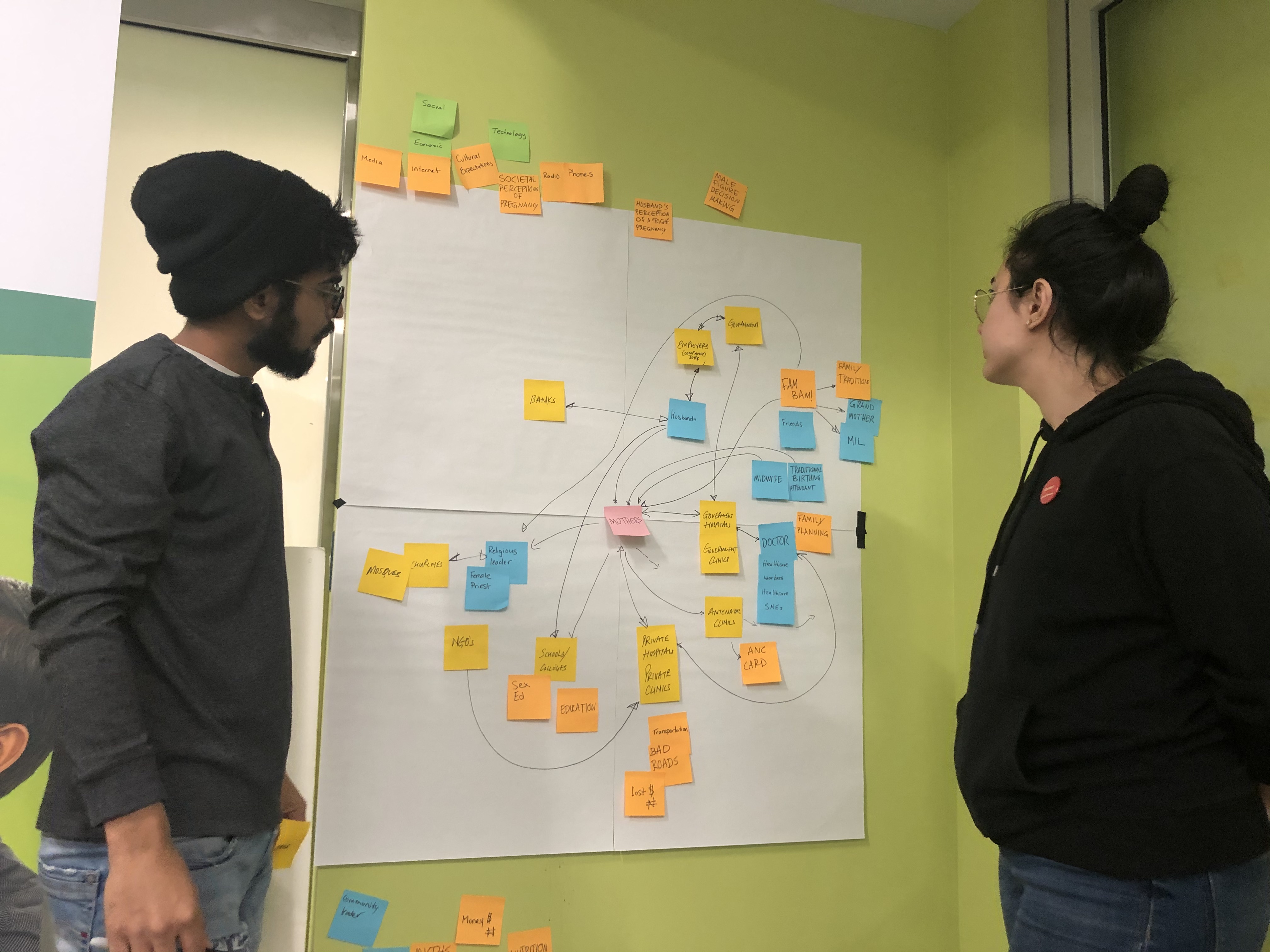
Data Analysis + Sense Making
The data analysis we worked on as a team helped us to better synthesize the information we’d collected. Grouping the information helped us gather our thoughts and present our findings concisely. The user personas and journey maps we felt was helpful to get ourselves all on the same page. Most importantly, that they would be particularly helpful in handing off the research to the next program to build empathy and understanding quickly.
Report + Presentation
As a team we complied all our primary research with key points of secondary research to build a full report on our findings. This really helped synthesize and further connect all our work. One teammate, designed the powerpoint slides that we would use to present our findings to COEFA and other industry professionals.
Key Findings
Nigerian woman who chose government hospitals for their care are often in poverty and illiterate. While woman who have more than 2 children are a lot less likely to have a healthcare facility birth but we didn’t have clear answers to why. Three key themes that came up were:
- Cost vs Quality of Care Government hospital can be upwards of four times cheaper than private hospitals but require women to provide their own consumables, are understaffed and have long wait times. Leaving woman to opt for risky home-births as, after a long journey to the hospital, they may not even see a doctor.
- Lack of Trust Regulatory measures, transparency and medical records in hospitals are all lacking and in addition fear of uncertainty and mistreatment builds distrust and hesitancy among expectant mothers, which influences their decision in seeking maternal healthcare.
- Mismanaged Government Policies While the government promotes the importance of care throughout pregnancy, they make poor attempts to equip their hospitals to provide adequate care. Instead government hospitals are underfunded and, in turn, lack staff which creates stressful environments for all. The lack of quality healthcare in the country is one major factor contributing to the overall loss of Nigerian talent.
Next Steps
Our findings and recommendations were passed onto to Algonquin's Computer Programming program to develop a possible solution. One of the solutions was a website to provide region-specific healthcare information. While this could help bridge information gaps, our survey results showed that, currently, only 10% of mothers looked online for information about clinics. Even still, the solution fails to help with the larger financial issues/barriers – on both sides. In an ideal scenario, our team/program could've spoken with users to validate the solutions before development started.
Looking Back
As Nigeria’s maternal healthcare problem is systemic and complex, digital tools may be helpful but I think additional changes will also be needed to create a more meaningful transformation. Secondary research showcased methods used by other countries with similar maternal care issues to improve outcomes. These were government led initiatives to improve trust in the community and improve health insurance options.
I feel it would’ve been more impactful to have been able to speak with Nigerian mothers and their families directly in addition to a survey. Hence finding youtube accounts with videos related to Nigerian healthcare to be so helpful. Perhaps being able to speak with government officials and community leaders would also be helpful to understand what barriers they see in healthcare. I also feel the program building solutions were likely limited based on the foundation it wanted to give it’s students. Nonetheless, I do hope that the outcome from this joint venture will have some positive impacts in Nigeria!
